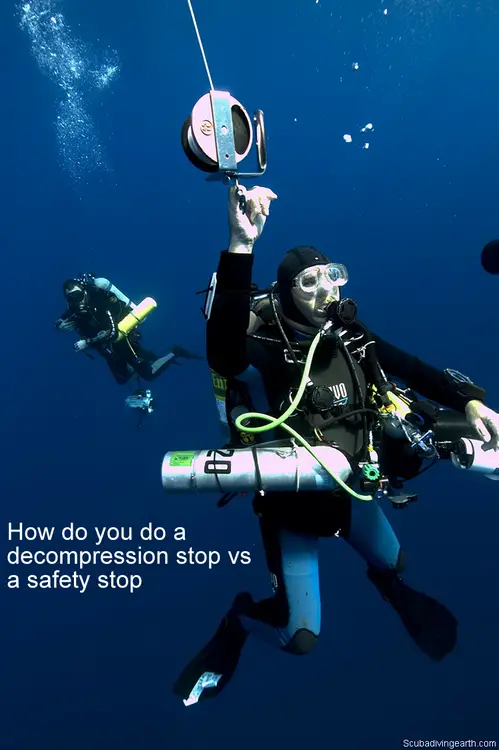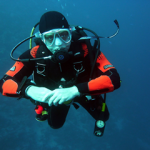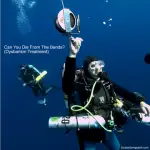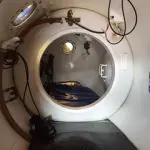
The ‘Bends‘ happens in 2.8 out of 10,000 dives, but where does the expression come from?
Whether you’re a seasoned scuba diver or a notice, you should ‘ve come across the concept of decompression sickness. But why is decompression sickness called the bends?
Why is decompression sickness called the bends? Decompression sickness is called the bends because afflicted divers characteristically bend forward at the hips due to the joint and bone pain it causes. The bends is caused by gases like nitrogen coming out of solution in the form of bubbles, which is usually a result of a fast ascent or missed decompression stops.
The best way to do more diving buy by avoiding the bends of course, is to book yourself on a scuba diving liveaboard. You can check the latest and best deals on liveaboards using the following window:
What is decompression sickness or the bends?
Decompression sickness (DCS), which is also known as divers’ disease or the bends, describes the condition that affects scuba divers.
The condition arises from dissolved gases (mostly nitrogen) coming out of solution, forming into bubbles inside the body on depressurisation.
This can occur on an ascent from a dive. But it usually only happens due to a rapid ascent from depth. Or if a scuba diver misses a decompression stop on their ascent.
More Reading: How do you do a decompression stop vs a safety stop
How many divers are affected by decompression sickness?
Whilst the incidence of decompression sickness is rare, world-wide it’s estimated that there are around 2.8 cases per 10,000 dives. But research shows that the risk for male scuba divers is 2.6 times greater than for female scuba divers.
According to the Divers Alert Network (DAN), decompression sickness occurs in approximately 1,000 U.S. scuba divers each year.
More Reading: 12 Decompression Sickness Risk Factors In Scuba Diving and How to Avoid Them
Why is decompression sickness also called the bends in more detail?
Whilst we know what decompression sickness is, why is it also called the bends?
It was Andrew Smith who first used the term “caisson disease“, which was the term used to describe 110 cases of decompression sickness. Smith was the physician who was in charge of the construction of the Brooklyn Bridge. It was here that these cases of caisson disease occurred.
This project employed 600 around ‘compressed air workers‘. But for them recompression treatment wasn’t used. This in turn is what caused the high numbers of decompression sickness in these divers.
More Reading: What happens if you don’t decompress when scuba diving
It was during this project that decompression sickness became known as “The Grecian Bends” or simply “the bends“. The reason for the term “The Bends” was because the afflicted individuals characteristically bent forward at the hips. This was as a result of the joint pain cause from the formation of bubbles in the joints.
But the term ‘the bends‘ was so used due to a then popular women’s fashion dance manoeuvre known as the Grecian Bend. The Grecian bend was a term which was first applied to a stooped posture, which became fashionable in around 1820. At the time the “bend” was considered to be very daring!
There are many symptoms of decompression sickness, which range from a minor skin irritation, which is also known as a skin bend, through to death in serious cases of decompression sickness.
More Reading: How Deep Can You Dive Without Decompression (No Decompression Stop Limits)

I hope you enjoyed this article about why is decompression sickness called the bends
I’d love to hear from you. Tell us about your adventures of diving and snorkeling, in the comments below. Please also share your photos. Either from your underwater cameras or videos from your waterproof Gopro’s!
If this article hasn’t answered all of your questions. If you have more questions either about snorkeling or types of scuba diving (or specifically about why is decompression sickness also called the bends), please comment below with your questions.
There will also be many more articles about scuba diving (and snorkeling) for you to read and learn about these fabulous sports.
Have fun and be safe!
More Reading: Emergency Decompression Stop vs Safety Stop (What’s The Difference?)





